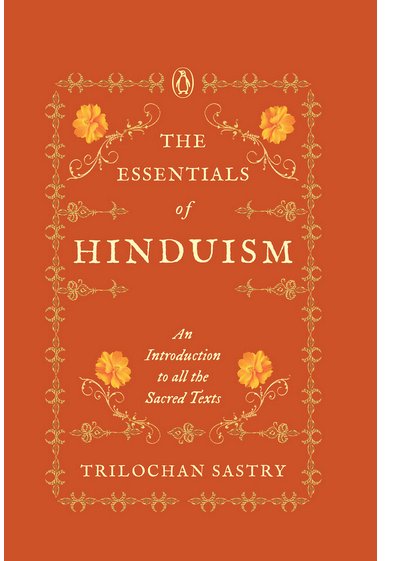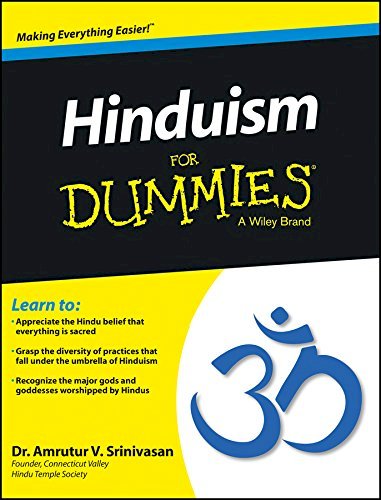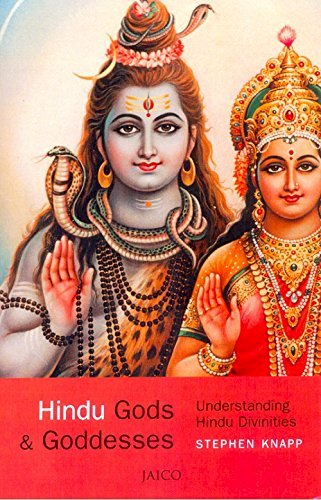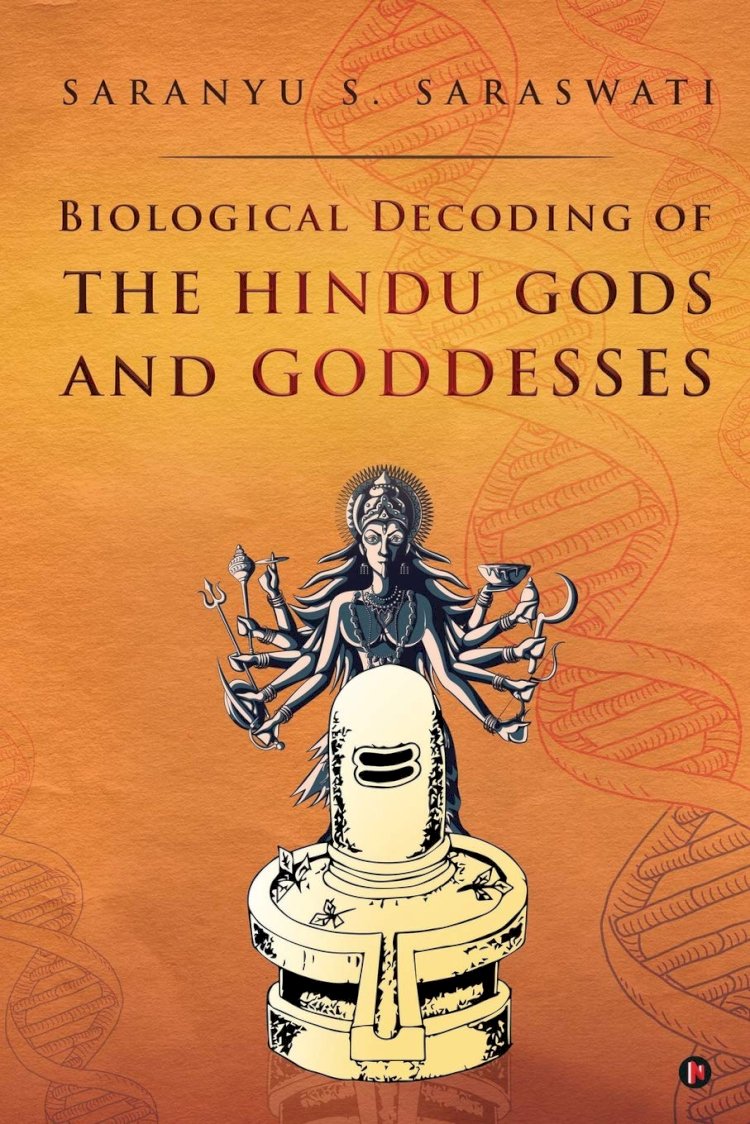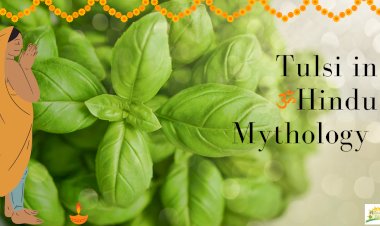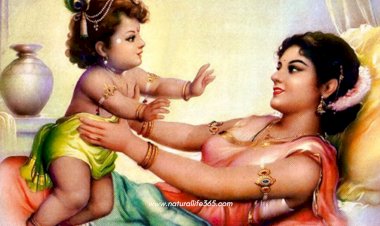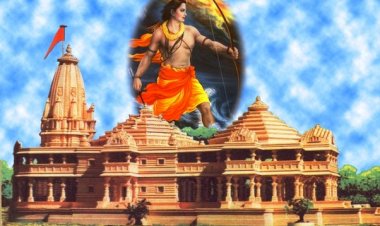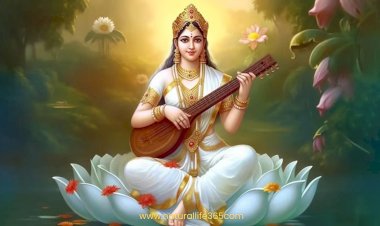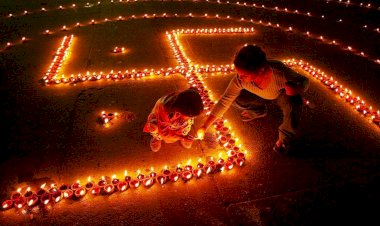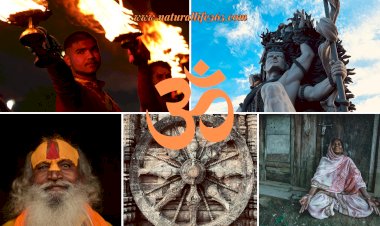Why Does Hinduism Have So Many Gods?
With hundreds of gods and goddesses to worship, Hinduism can be a challenging religion to understand. But by examining the various philosophical and mythological elements that underpin this faith, we can gain a deeper appreciation of its rich complexity.
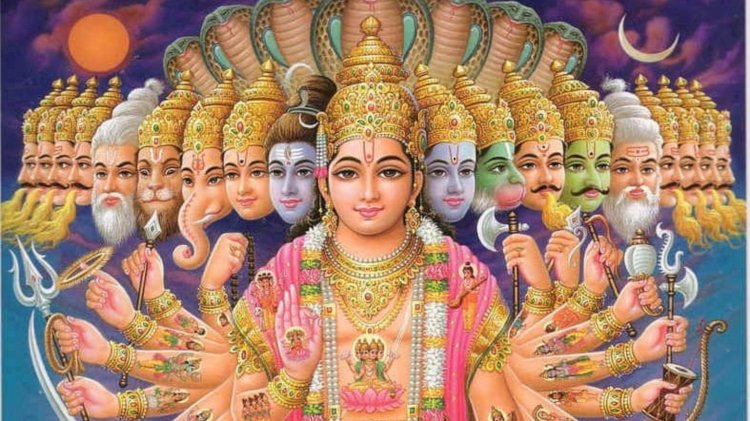
Hinduism is one of the oldest religions in the world and is known for its vast pantheon of gods and goddesses. With an estimated 330 million deities, it's natural to wonder why Hinduism has so many gods. To some, this might seem like a strange or confusing aspect of the religion. However, understanding the concept of multiple gods is essential to understanding Hinduism as a whole.
In this blog post, we will explore the reasons behind the multiplicity of gods in Hinduism. We will delve into the historical context, cultural and regional variations, and the spiritual significance of having multiple gods. Additionally, we will address common misconceptions and criticisms of polytheism and clarify the concept of multiple gods in Hinduism.
It's important to note that while Hinduism is often referred to as a polytheistic religion, this is not entirely accurate. The concept of god in Hinduism is complex and multifaceted, with the ultimate reality being Brahman, an all-encompassing, infinite, and impersonal entity. The various gods and goddesses are considered to be manifestations of Brahman, representing different aspects of the universe and serving different purposes.
By the end of this blog post, we hope to provide a deeper understanding of the concept of multiple gods in Hinduism and shed light on this unique and fascinating aspect of Hinduism but of course, you can always read directly from books. I can recommend you: The Essentials Of Hinduism: An Introduction To All The Sacred Texts by Trilochan Sastry who unpacks all the ancient texts from the Vedas to the epics covering the entire range of scriptures and everything you need to know about them in an easy-to-read and accessible way making it of special interest to Hindus and those from other religions and nations, and even those who are agnostic or atheistic.
You can also read Why India's New Ram Temple is So Important?
Historical Background
To understand why Hinduism has so many gods, it's essential to look at the historical context in which the religion developed. Hinduism has a rich and complex history that spans thousands of years, and its evolution has been shaped by numerous factors such as cultural and social influences, migration, and political change.
The earliest form of Hinduism emerged during the Vedic period, around 1500 BCE. During this time, the Vedas, a collection of ancient hymns and sacred texts, were composed. These texts were initially passed down orally from generation to generation and were eventually written down in Sanskrit. The Vedas served as the basis of Hinduism and provided a framework for the religion's belief system and rituals.
Over time, Hinduism evolved and incorporated various elements from other religions and cultures. For example, during the 6th century BCE, the teachings of Buddha and Mahavira, the founder of Jainism, influenced the development of Hindu philosophy.
The historical background of Hinduism also explains the regional and cultural variations in the religion's practices and beliefs. For instance, different regions of India have their own unique deities and rituals that reflect their distinct cultures and traditions. Additionally, Hinduism's interactions with other religions, such as Buddhism and Jainism, led to the emergence of new sects within the religion.
Overall, understanding the historical background of Hinduism provides valuable insights into why the religion has so many gods. The evolution of Hinduism over thousands of years has led to a rich and diverse belief system that reflects the complex history and cultural influences of the Indian subcontinent.
If you are not a Hindu and don't have any idea about Hinduism but feel interested in knowing from zero, let me recommend this book: Hinduism for Dummies by Dr. Amrutur V. Srinivasan. Please, don't offense, I am not calling you a "Dummy" but a beginner. Hinduism For Dummies provides readers with a thorough introduction to this ancient and popular world belief system. It provides readers with information on the rites, rituals, deities, and teachings associated with the practice of Hinduism.
Understanding the Concept of God in Hinduism
To understand why Hinduism has so many gods, it's important to first understand the concept of god in Hinduism. The idea of god in Hinduism is complex and multifaceted, and there is no one-size-fits-all definition. However, some key concepts are central to the Hindu understanding of god.
One of the most important concepts in Hinduism is Brahman, an all-encompassing, infinite, and impersonal entity that is the ultimate reality. Brahman is often described as the source and foundation of all existence and is believed to be present in all things. In this sense, everything is divine, and every individual is part of the divine whole.
The various gods and goddesses in Hinduism are considered to be manifestations of Brahman, representing different aspects of the universe and serving different purposes. For example, Shiva is the god of destruction and transformation, while Vishnu is the god of preservation and harmony. Devi, the goddess, represents the divine feminine and is associated with creative energy and power.
Another important concept in Hinduism is karma, the idea that every action has consequences. The gods and goddesses in Hinduism are seen as agents of karma, either bestowing blessings or bringing about hardships depending on an individual's actions.
It's also important to note that Hinduism recognizes the existence of multiple paths to the divine. Different individuals may connect with god through different means, such as devotion, knowledge, or action. Thus, there is no one prescribed way to worship or understand god in Hinduism.
In summary, the concept of god in Hinduism is complex, with the ultimate reality being Brahman. The various gods and goddesses in Hinduism are considered to be manifestations of Brahman, serving different purposes and representing different aspects of the universe. Understanding these concepts is essential to understanding why Hinduism has so many gods.
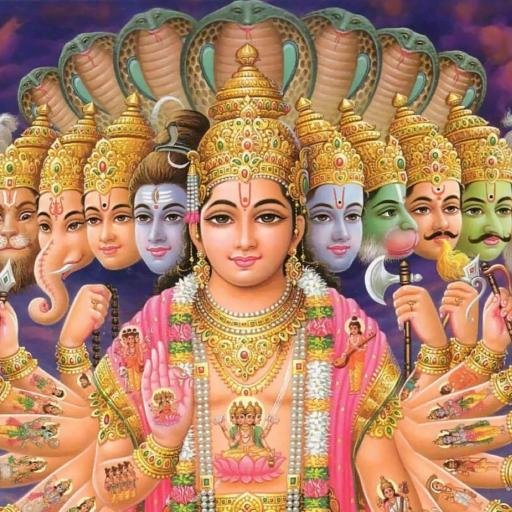
Reasons for the Multiplicity of Gods
One of the most striking features of Hinduism is the multiplicity of gods and goddesses worshipped by its followers. While it may seem overwhelming or confusing at first glance, there are several reasons why Hinduism has so many gods.
Firstly, the various gods and goddesses in Hinduism serve different purposes and represent different aspects of the universe. For example, Ganesha, the elephant-headed god, is associated with wisdom and overcoming obstacles, while Lakshmi, the goddess of wealth and prosperity, is worshipped for financial success. Each god or goddess has a specific function and is worshipped accordingly. In this sense, the multiplicity of gods reflects the diverse needs and desires of human beings.
Secondly, the diversity of Hinduism is reflected in the variety of gods worshipped. Hinduism has a long history and has developed over thousands of years, with various cultural, social, and religious influences shaping its evolution. Different regions of India have their own unique gods and goddesses, reflecting their distinct cultures and traditions. Additionally, Hinduism has interacted with other religions such as Buddhism and Jainism, leading to the emergence of new sects and movements within the religion.
Thirdly, the idea of god in Hinduism is not limited to a singular entity but rather encompasses a broad range of divine beings and manifestations. The ultimate reality, Brahman, is seen as all-encompassing and infinite, and the various gods and goddesses are considered to be manifestations of Brahman, representing different aspects of the universe. This means that every deity is considered to be divine, with each individual choosing which gods or goddesses to worship based on their personal beliefs and needs.
Finally, the multiplicity of gods in Hinduism provides a sense of inclusivity and diversity. Unlike other religions that may have strict guidelines on how to worship or understand god, Hinduism acknowledges that there are many paths to the divine. The multiplicity of gods allows individuals to connect with the divine in different ways, whether through devotion, knowledge, or action.
In conclusion, the multiplicity of gods in Hinduism serves many purposes and reflects the diverse needs and desires of human beings. The variety of gods and goddesses worshipped in Hinduism is a testament to the religion's inclusivity and diversity, allowing individuals to connect with the divine in their own unique way.
Here I recommend another book: Hindu Gods and Goddesses. This book explains the nature of the Vedic divinities, their purposes and powers, and the ways they influence and affect the natural energies of the universe. It also shows how they can assist us and that blessings from them can help our own spiritual and material development and potentialities, depending on what we need. The divinities include Lord Krishna, and Vishnu, their main avatars and expansions, along with Brahma, Shiva, Ganesh, Murugan, Surya, and Hanuman, as well as the goddesses including Radha, Durga, Saraswati, and Lakshmi. We find explanations of their names, attributes, dress, weapons, instruments, the meaning of the Shiva lingam, and some of the legends and stories connected with them.
Significance of the Multiple Gods
Hinduism is known for its multitude of gods and goddesses, each with its unique set of stories, attributes, and symbolism. While it may seem overwhelming at first glance, the multiple gods in Hinduism have significant cultural, spiritual, and social significance.
One of the key benefits of having multiple gods is that it reflects the complexity and diversity of the human experience. The various gods and goddesses in Hinduism represent different aspects of life, including love, war, creation, destruction, and knowledge. By worshipping these deities, Hindus can connect with different aspects of themselves and the world around them.
Additionally, the multiplicity of gods in Hinduism provides a sense of inclusivity and accessibility. Unlike monotheistic religions where there is only one god and one way of worshipping, Hinduism recognizes the existence of multiple paths to the divine. Different individuals may connect with god through different means, such as devotion, knowledge, or action. Thus, the multiple gods allow for a diversity of religious practices and beliefs.
Moreover, the multiple gods in Hinduism serve as symbols of cultural and regional identity. Each region of India has its own set of gods and goddesses, reflecting its unique culture, history, and traditions. By worshipping these deities, Hindus can connect with their cultural roots and celebrate the diversity of their country.
The multiplicity of gods in Hinduism also plays a significant role in social and political life. The worship of certain gods and goddesses is associated with particular castes, professions, and social groups. For example, the worship of Ganesha, the elephant-headed god, is often associated with merchants and traders, while the worship of Shiva, the god of destruction, is associated with ascetics and yogis. By worshipping these deities, individuals can assert their social identity and maintain their social status.
So the multiple gods in Hinduism have significant cultural, spiritual, and social significance. The diversity of gods allows for a multitude of religious practices and beliefs, reflecting the complexity and diversity of the human experience. The worship of different gods also allows individuals to connect with their cultural roots and assert their social identity. Overall, the multiple gods in Hinduism are a testament to the rich and vibrant culture of India.
If you still haven't read about the Biological Decoding of the Hindu Gods and Goddesses by Saranyu S. Saraswati then you should. Here you will find the meaning of the Hindu gods and goddesses, the great philosophy of worship in idols by the Hindus. You will be able to answer questions like What makes an Avatar of Lord Vishnu? Why Devi Durga is worshipped in many different manifestations? How come death (Yama) is a God? How Hindu Gods are parts of health sciences? And much more.
Criticism and Misconceptions
Despite its rich cultural heritage, Hinduism has faced its fair share of criticism and misconceptions over the years. Some of the most common criticisms and misconceptions of Hinduism include the notion that it is a primitive and backward religion and that it promotes idol worship and superstition.
One of the most persistent criticisms of Hinduism is that it is a primitive and backward religion. This criticism is often based on the fact that Hinduism is an ancient religion that predates many of the world's major religions. However, this criticism fails to recognize the sophistication and complexity of Hinduism, which includes a vast body of philosophical and spiritual texts, as well as a rich tradition of art, music, and literature.
Another common criticism of Hinduism is that it promotes idol worship and superstition. This criticism is often based on a misunderstanding of the role of idols in Hinduism. Idols are not worshipped as gods in themselves but rather serve as representations of the divine. They are used as aids in meditation and prayer, helping worshippers to focus their minds and hearts on the divine.
You can also read 6 Misconceptions The World Still Has About India
Misconceptions about Hinduism also abound in popular culture. For example, the depiction of Hindu gods and goddesses in popular media often perpetuates stereotypes and misunderstandings. Hinduism is also sometimes conflated with other religions and spiritual practices, such as Buddhism (although they have some points in common) or New Age spirituality, leading to further confusion. These are topics that we will talk about in another post.
While Hinduism is a rich and vibrant religion with a long and complex history, it has faced its fair share of criticism and misconceptions over the years. It is important to recognize the complexity and diversity of Hinduism, as well as to challenge the stereotypes and misunderstandings that often surround it. By doing so, we can better appreciate the cultural and spiritual richness of this ancient and enduring tradition.
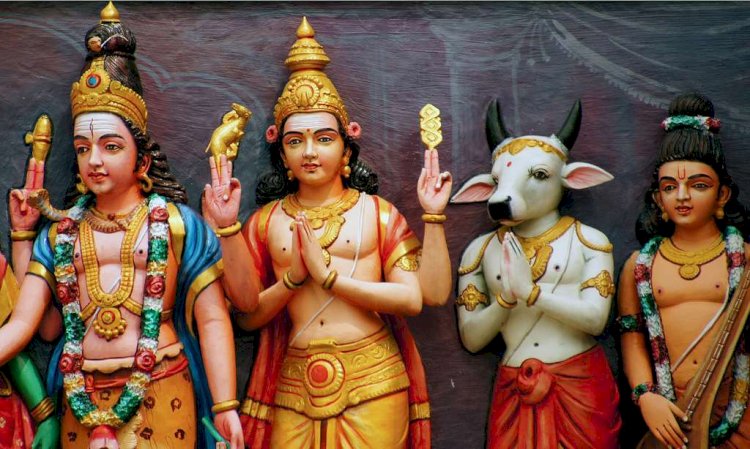
The multiplicity of gods in Hinduism is a fascinating and complex topic that reveals much about the religious and philosophical traditions of India. As we have seen, the concept of god in Hinduism is not a fixed or monolithic one but rather encompasses a wide range of divine beings with diverse attributes and functions.
While some may find the idea of multiple gods confusing or even problematic, it is important to recognize that this concept is deeply rooted in the cultural and spiritual traditions of India. For many Hindus, the multiplicity of gods reflects the diversity and complexity of the natural world and the human experience and serves as a source of inspiration, guidance, and comfort in their daily lives.
At the same time, it is important to recognize that the multiplicity of gods in Hinduism has been the subject of criticism and misunderstanding over the years. Some have viewed it as a primitive or superstitious belief, while others have accused it of promoting social inequality or cultural chauvinism.
To fully understand and appreciate the multiplicity of gods in Hinduism, it is necessary to approach the topic with an open mind and a willingness to explore its many dimensions and nuances. By doing so, we can gain a deeper appreciation of the rich cultural and spiritual heritage of India, and perhaps even find new insights and inspirations in our own lives.
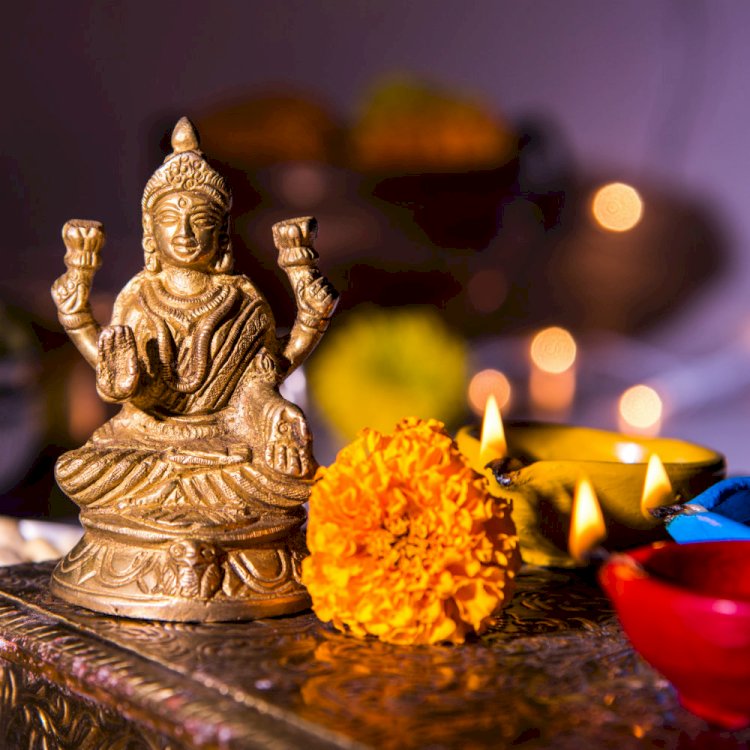
If you value these free online resources provided by Natural Life 365, please consider supporting my website by sharing the blogs ![]()
DISCLAIMER:
Some of the links in this content may be affiliate links. This means that if you click on one of the links and make a purchase, I may receive a commission (at no extra charge to you). However, I only recommend products that I personally use and have tested myself. Also, understand that I have taken reasonable steps to ensure that the information on this content is accurate, but I cannot represent that the website(s) mentioned in this post are free from errors. Please, check the Affiliate Disclosure at the bottom of this website.

